Graham Reid | | 6 min read
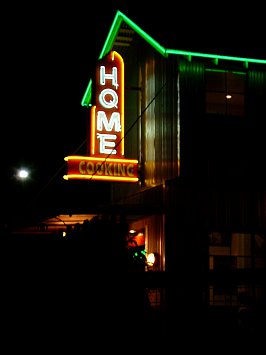
Drive through America's southern states tuned to country music radio stations and you'll hear it; Letters from Home by John Michael Montgomery.
It's real catchy, was still in the top 20 of the country charts after six months, and you can guess what it's about.
But in case you miss the sentimental message the video is even more literal: photogenic talent-agency soldiers playing cards and looking bored, reading letters from the folks back home, then suddenly leaping into action in some dusty, bleached out world.
It isn't the only country song where the subtext is Iraq -- "freedom doesn't come free'' is a common lyric these days -- but it is typical of a pervasive mood.
This is a reductive and cliched view of heroism but, judging by Montgomery's sales, a popular one. American flags and bumper stickers are visible enough throughout most of the South, but especially so in Texas. This is the president's home state and his portrait as governor hangs in Austin's impressive State Capitol Building, which people will quickly tell you stands taller than the National Capitol in Washington DC.
But that's Texas for you, everything is bigger here -- even the myths.
The flags may look like banners for the incumbent if increasingly beleaguered home-state guy in the White House, but you don't have to go far to find Texans of a different, and indifferent, persuasion.
"Not my president" is a familiar t-shirt around universities.
Trophy's Bar and Grill in south Austin is a rundown kind of place in one of the less savoury parts of town. There are tattered pool tables, graffiti covers the toilet walls, and the girl behind the bar says women are seldom seen there.
In the men's toilet there is no door on the cubicle. It seems there never has been one. If you believe what the marker pens tell you someone called Dave is a sexual athlete with the morals of a goat.
There's a small, battered stage just beyond the pool tables and working men come here to drink at the end of the day while the jukebox pumps out ancient Beatles songs, Jane's Addiction rock and pompous Guns 'n' Roses ballads.
On the silent television screen above the bar news footage from Iraq rolls on. Few people are watching the captioning but nurse their beers quietly. After an hour however the liquor kicks and the conversations and jukebox become louder, the talk more animated.
"Dead man walking,'' mutters someone when John Kerry appears on the screen. In a state where bars and restaurants have signs warning against carrying a firearm it's hard to know whether he means Kerry hasn't a hope, or that he might be the target of a bullet if he starts pulling too far ahead of Bush in the polls.
But Kerry still seems a lame duck in many regards and even his supporters concede he's coming across as equivocating, his foreign policy statements not sufficiently distinguishable from the Republican positions, and he's no good on television.
"Every time he opens his mouth he loses votes,'' says a friend. "They should just keep him off television.''
"He looks weird too,'' says his wife. Well, elections -- as Richard Nixon learned -- have been won and lost on such an impression.
But a lot of people just don't care.
Warren is a weather-beaten Trophy's Bar regular who describes himself as having been a bum.
"But I never had no sign", he barks, as if this would have been demeaning.
He tells the story of his life. It includes hitching from Louisiana, something about living with a couple of prostitutes who took his money, then a gay guy "but I ain't no gay", and now working for the county. He says it would make a great book, "but I can't write".
"I ain't innerested in no politics neither," he says, and in this bar he isn't alone in that. Over in east Austin which is largely Mexican there is even less interest. These are people who feel disenfranchised from the process of politics.
Add in the itinerants, illegals, the ineligibles because they are felons (five per cent of those of voting age in Texas) and the homeless (4000 in Austin's Travis County), and you see why voter turn-out can be so low in the United States.
Celeb-radical film maker Michael Moore talks of the 50/50/50 divide in America: "Those who vote, those who seem evenly split, and the 50 per cent that don't vote''.
He's not overstating the case. The last election when more than 55 per cent of Americans voted was 1972 (55.2 per cent) and the turnout hit a low of 49 per cent in 96. For the election which saw George W Bush take office only 51 per cent of eligible voters turned up to the ballet box. Bush took office with fewer than half of half the voters.
When you add in the gerrymandering of electoral boundaries -- and that thing with the chads in Florida last time -- a lot of people simply don't bother with, or even care about, politics.
But Tom sipping a Newcastle Brown in Trophy's is keen to talk geo-politics and what is playing out silently above us on the television. He's in his early 40s, tells of how he joined the military at age 17 ("Part of the poverty draft, I was a high school dropout so what else was there?") and served a tour of duty in Korea. His unit was later on high alert when the Russians invaded Afghanistan.
He's a lapsed military man now and after a lifetime of itinerancy, trade courses, installing satellite dishes and working as a carpenter he is self-educated politically and well-informed. It was the Iran-Contra hearings that alerted him to the idea that all was not right with his government.
"So I just started trying to find out truth. And it's always, follow the money, follow the money."
He reads Noam Chomsky and the liberal Left, spent time in South America working for aid programmes, and the Internet has put him in touch with like-minded people and websites. They feed his interests which, he acknowledges, put him just this side of a conspiracy theorist. He's in good company in Austin, the home to the nation's foremost conspiracy theorists Alex Jones who has radio programmes, websites and low-tech cable shows on television.
"I consider Alex Jones a soldier," says Tom. "He's just using his own methods of warfare."
It would be too easy to dismiss Jones lightly as attracting only the fringe dwellers. His analysis of the Patriot Act -- which he argues is anti-democratic and fundamentally un-American -- finds common ground with arch-conservatives as well as liberals.
In his documentaries and low budget television programmes Jones speaks of the oil cartels, takes heartland sentiment back to the founding documents of the nation, cross-references to reports in the mainstream media, and steadily builds his case against the Bush administration.
He uses all the available technology -- one of his many linked websites is jonesreport.com -- and while he may be a blunt speaker he is impressive and even persuasive. And in the absence of contrary voices or the anonymous media releases from the White House he is finding an audience among the doubters, disenchanted or vaguely curious.
Intellectual dissenters like Jones ("Now he's a true patriot," says Ray who runs a local computer software company) are not only important to the democratic process but essential. As we see by the newspaper on the following hung-over morning.
The Austin American-Statesman's Saturday edition comes with half a dozen sections including Metro and State news, Life and Arts, a Business section and, at a guess, approximately half a million car ads.
I turn to World & Nation. It is four pages, two of them full-page advertisements, the other two splattered by quarter and half page ads. The section contains just one story, a slight LA Times piece about how South American countries are not the new "axis of evil" as Republican senator from Illinois Henry Hyde said in October 2002.
And that is the sum of the world news for this weekend edition.
Television news is no better. Outside of major networks like CNN or Rupert Murdoch's pro-Bush Fox network, news tends to be local and little further.
In the absence of readily digestible information and the overload of commentators and interpretations by thousands of talking heads on nightly newscasts, it is little wonder the politically curious have resorted to the Internet and AM radio to hear the voices of people like Jones. He might not be reaching as many people as John Michael Montgomery and his patriotic Letters From Home but he is speaking to, and for, a significant, concerned and yes, sometimes slightly flaky, minority.
In the wide open spaces of Texas the opinions of the New York Times, the Los Angeles press or the handsome faces on CNN might as well be from another planet.
"People just want entertainment, another Survivor," says Tom. "But Alex Jones is the real reality television."
We buy more beers and Warren tells me about his new weed-eater. A young Spanish guy rides through the bar and around the pool tables on a pushbike.
"What can you do?" says the barman.
It occurs to me later he could have been talking about politics.


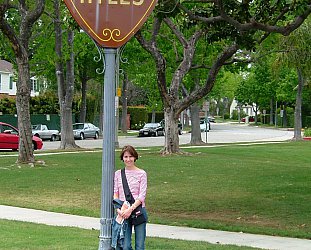
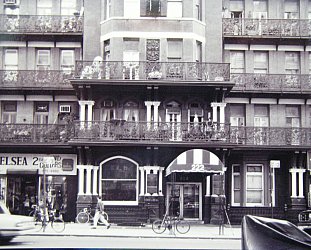

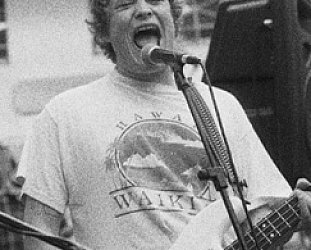
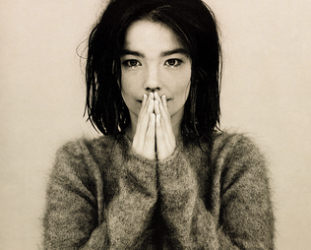
post a comment